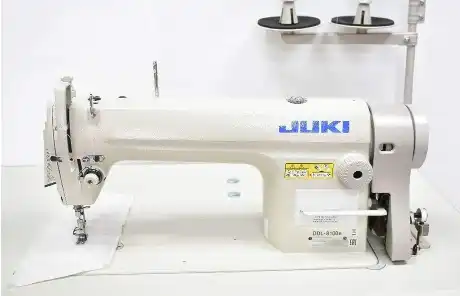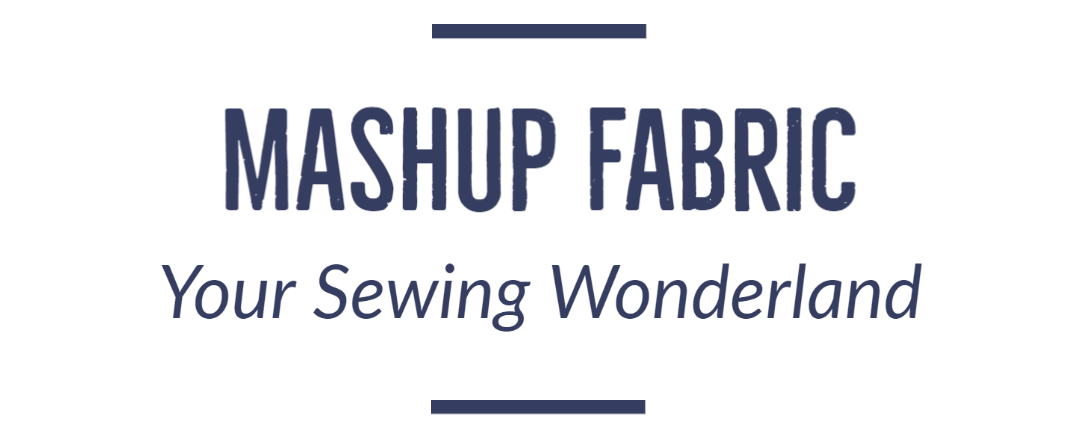The Juki DDL-8100ES is a popular industrial straight stitch sewing machine renowned for its durability, speed, and seam quality. As an industrial grade machine, it’s built to withstand heavy duty workloads and is commonly found in factories, alteration shops, and production sewing businesses.
In this comprehensive Juki DDL-8100ES review, we’ll cover everything you need to know about this sewing workhorse:
- Overview of features
- Performance for different fabrics
- Ease of use
- Maintenance requirements
- Pros and cons
- Alternatives to consider
Overview of Juki DDL-8100ES Features

The Juki DDL-8100ES is a straight stitch only machine, meaning it can only sew forwards and backwards in a straight line. But it excels at this singular purpose and offers the following features:
- Sturdy metal construction – built like a tank for durability in industrial settings
- Powerful motor – delivers speeds up to 4500 stitches per minute
- Adjustable stitch length – up to 5mm allows flexibility for different fabrics
- Automatic thread trimmer – saves time and effort trimming threads
- Knee lifter – hands-free presser foot lifting up to 13mm
- Self-lubricating rotary hook – reduces maintenance
- Onboard storage – compartments for needles, bobbins, oil, and accessories
With its fast sewing speed, adjustable stitch length, and heavy-duty build, the Juki DDL-8100ES is ideal for sewing straight seams and hems on a range of light to medium-weight fabrics. The automatic thread trimmer saves the extra step of cutting threads manually after sewing.
Performance on Different Fabrics
Thanks to its industrial grade construction and straight stitch optimized design, the Juki DDL-8100ES performs exceptionally well on most fabric types. Here’s an overview:
Lightweight Fabrics
The Juki DDL-8100ES makes light work of lightweight fabrics like chiffon, voile, and light cotton. For best results, use appropriately sized needles and adjust the stitch length to suit the fabric. The max speed may be too fast for delicate fabrics – simply control the foot pedal for a slower pace.
Medium Weight Fabrics
Most medium weight woven fabrics like shirting cottons and linens are handled beautifully at high speeds. The machine glides through straight seams and topstitching on garments and craft projects. Adjustable stitch length allows versatility.
Denim and Canvas
The Juki DDL-8100ES has the power to sew multiple layers of sturdy fabrics like denim, canvas, twill, and other heavy cottons. Use the right needle size and workspace to maneuver bulky seams.
Stretch Fabrics
The machine’s straight stitch only design isn’t ideal for sewing stretch fabrics with a lot of give. Very stable knits can be managed with a stretch needle and adjustable tension. Seams may require reinforcement.
Leather and Vinyl
Genuine and faux leathers can be sewn but require the correct throat plate, needles, and handwheel control. The Juki DDL-8100ES can manage lightweight leathers; heavier upholstery leather may pose a challenge. Always test on leather scraps first.
In summary, the Juki DDL-8100ES is mainly suited to medium weight woven fabrics, with the ability to handle lighter and some heavier materials when configured correctly. Very elastic knits and heavy duty upholstery leather are better suited to machines with specialty features.
Ease of Use
As an industrial machine, the Juki DDL-8100ES differs from regular home sewing machines in its operation and capabilities. Here’s an overview of its ease of use:
- Threading the machine – follows an industrial style sequence, with tension discs and multiple thread guides. Demands precision.
- Bobbin winding – uses a side mounted shuttle hook, winding requires familiarity with the system.
- Feeding fabric – industrial high-speed pace requires experience guiding the fabric, no embroidery stitches or decorative options.
- Adjustments – stitch length dial provides simplicity for adjustment on the fly.
- Maintenance – self-oiling hook reduces maintenance, but still requires regular oiling, cleaning and servicing.
The Juki DDL-8100ES has an industrial style foot pedal providing speed control. Beginners used to computerized machines may find it less intuitive. No fancy stitches here – just straight stitching up to 4500 SPM. The high speed can be challenging for light fabrics.
Overall, the machine is best suited to experienced sewers comfortable with industrial setups. The powerful motor and speed require skill. While not the most user-friendly for beginners, its simple single purpose design makes operation more straightforward than computerized machines.
Maintenance Requirements
All industrial sewing machines require regular maintenance to keep them running in peak condition. Here are the key maintenance tasks for the Juki DDL-8100ES:
- Oiling – Use only light sewing machine oil, applied with care to pre-oiled parts. Avoid over-oiling.
- Cleaning – Wipe away fabric lint and threads from moving parts using a soft brush and cloth.
- Servicing – Have the machine professionally serviced annually to keep the motor, foot pedal, and moving parts running smoothly.
- Replace consumables – Needles, bobbins, throat plate – replace as needed for optimal performance.
The self-lubricating rotary hook means oil is distributed evenly to reduce friction and wear. But regular oiling is still required along with blow dusting, test-stitching, and professional servicing to maximize the machine’s longevity.
Pros of the Juki DDL-8100ES
- Durable industrial construction
- Fast sewing up to 4500 SPM
- Consistent stitch quality on medium fabrics
- Self-oiling rotary hook reduces maintenance
- Knee lifter allows hands-free operation
- Automatic thread trimmer for efficiency
- Reliable performance for intense workloads
- Brand reputation for quality and reliability
Cons of the Juki DDL-8100ES
- Not suitable for complete garment construction
- Limited to straight stitch only
- Not recommended for beginners
- Runs fast – less control for delicate fabrics
- Industrial style operation less intuitive
- Requires regular oiling and servicing
- Significant noise while operating at high speeds
- Large footprint – not easily portable
Alternatives to Consider
The Juki DDL-8100ES dominates for straight stitch industrial sewing, but may not suit all users. Here are two alternative Juki models to consider:
Juki DDL-8700 – Very similar industrial machine but without the automatic thread trimmer. More affordable but less automation.
Juki TL-2000Qi – A home sewing version with loads of utility stitches, 1-step buttonhole, and quilting capabilities. Better for garment construction over industrial use.
There are also machines from other brands such as Brother, Janome, and Singer that offer computerized benefits for home sewing while maintaining high speeds and solid construction to handle small business workloads.
Read: Juki MO-735 Serger Review: A Versatile And Powerful Sewing Machine
Conclusion
With its reputation for quality construction and performance, the Juki DDL-8100ES is built for high-speed industrial straight stitching. This Japanese-made machine delivers on durability, speed, and seam integrity – as long as you don’t need decorative stitches or machine garment construction.
Intermediate and professional sewers who are comfortable with industrial setups will benefit most from the Juki DDL-8100ES’s power and reliability.
For those needing more versatility in home sewing, computerized machines offer a better experience. Either way, Juki is a trusted brand and the DDL-8100ES upholds the dedication to precision and quality that users expect.
